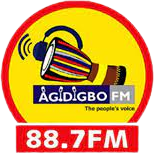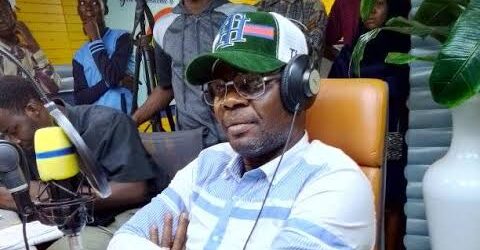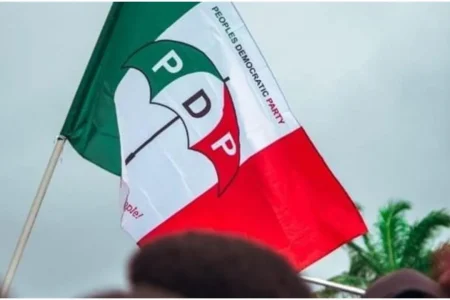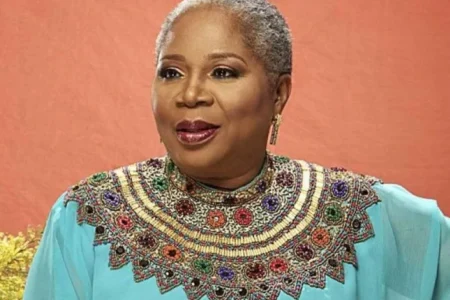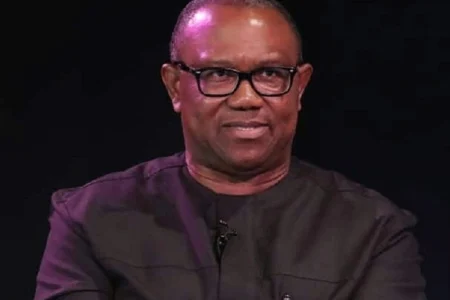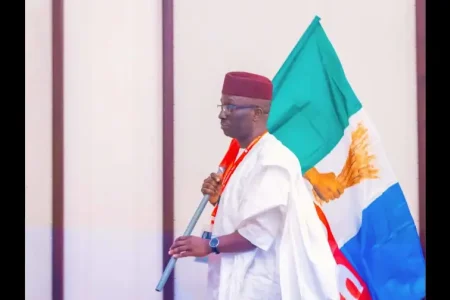OYOINSIGHT’S Publisher, Sikiru Akinola, toured the facilities of Agidigbo 88.7 FM in Ibadan, ahead of its formal commissioning. During his visit, he had a sit-down interview with the proprietor, Oriyomi AbdulRahman Hamzat, a renowned On-Air Personality (OAP), to delve into his broadcasting journey. Here are some excerpts from the interview:
-
When did the idea of owning a radio station first come to your mind?
Many years ago, my father, Alhaji, who worked at NTA, sparked the idea of venturing into radio ownership. Before 1999, during his pilgrimage to Hajj, he purchased equipment with aspirations of starting his own broadcasting venture. Unfortunately, those plans didn’t materialize.

My interest in broadcasting had always been present, but I initially viewed it as a daunting endeavor. Interestingly, the concept of establishing a radio station was initially tied to Bebe Islam. However, regulatory restrictions dampened that possibility, leading me to pursue the goal independently. Starting with an online platform due to resource constraints, I began my broadcasting journey.
During a brief stint working alongside Yinka Ayefele, he encouraged me to focus on establishing my own station rather than juggling multiple roles. This advice resonated deeply, prompting me to delve into creating my own radio presence. However, challenges emerged along the way.
Encounters with opposition and a significant setback involving the invasion of my studio by DSS officials resulted in the confiscation of all my equipment, which has yet to be returned. Undeterred, I persevered, investing in new equipment, only to face further adversity when they were destroyed in a fire not long after.
In the midst of these challenges, I was actively gearing up for the launch of my terrestrial station. When my online platform was destroyed by fire, I made a firm decision not to return to the online space. I reasoned with myself that if it was meant for me to own a radio station, divine intervention would pave the way.
The proliferation of online radio stations had reached a saturation point in my perception, diminishing their significance. I believed that the value proposition of online broadcasting had diminished amidst the abundance of such platforms.
-
There are like 42 radio stations in Ibadan. What different things are you bringing to the table?
If you glance over there, you’ll notice two Mikano generators ready for use, ensuring uninterrupted power supply. The preparation for this venture differs from predecessors, adapting to the changing landscape of the industry. Unlike earlier entrants, Agidigbo FM marks the maiden voyage of a seasoned broadcaster and professional. This distinction grants me a unique advantage. This endeavor isn’t merely a business venture; it’s a manifestation of passion. When questioned about the return on investment, I simply smile, for this journey is driven by passion rather than profit. Had profit been the sole motive, alternative investments would have been preferred. However, the fulfillment derived from owning a radio station surpasses monetary gains.
Furthermore, my extensive experience across various facets of broadcasting, from humble beginnings as a ‘slave’ to roles as a freelancer and broadcaster across diverse stations, equips me with an intimate understanding of the industry’s nuances. This firsthand insight positions us uniquely. With God’s grace, Agidigbo FM will rise above, guided by principles of truth, accountability, and service to the masses. We embrace the responsibility of challenging authority, standing unwavering in our commitment to truth, and advocating for the people’s interests. This divine grace propels us forward, ensuring that the masses remain our compass in every decision and action we undertake.
In the past, I encountered challenges with the government, but despite lacking the power to defend me, the masses unequivocally expressed their support upon my release. It’s the solemn duty of the media to hold the government accountable.
With God’s grace guiding me, without soliciting funds from external sources, there’s no incentive to compromise the truth. I understand that people yearn for honesty, albeit many are hesitant to voice it. Yet, by steadfastly upholding the truth, Agidigbo Radio will reign supreme.
Some may question my ability to maintain my advocacy for the masses now that we have a physical location, unlike when we were solely online. However, anyone sharing my conviction should be prepared to explain the inherent risks to their loved ones. I firmly believe that as long as I align with truth, no force can thwart our mission. I solemnly vow to uphold this principle, serving the masses with unparalleled dedication. Our programmes are crafted to benefit and enlighten the masses, respecting their voices and nurturing their understanding.
The caliber of individuals we’ve assembled, including Ajibola Akinyefa and myself, underscores our commitment to truth. Journalists must recognize the gravity of their profession’s accountability, as their actions carry profound consequences, not just in this world, but also in the hereafter. Failure to report accurately can have dire consequences, and each journalist will ultimately be answerable for their deeds on the day of judgement.
-
Mentorship has become increasingly challenging in recent times. What strategies do you have in mind to address this issue?
I faced disappointment at the outset of this venture. Initially, my intention was to rely on the skills of capable individuals rather than hiring established names. When I obtained the license, I sought out raw talent and gifted individuals who simply required refinement. Despite auditioning 300 candidates, only two met our criteria, which left me disheartened. What troubled me most was that some of them had studied media-related courses.
In response, we have taken proactive steps by establishing a practical broadcasting school named in honor of my father. We’ve forged partnerships with Channels, TVC, and Radio Nigeria. Our vision is to establish a dedicated training studio where aspiring broadcasters can hone their skills according to NBC codes. Once they demonstrate readiness, we provide them with airtime to showcase their talents. Our goal is to streamline our training process and produce broadcasters who adhere to industry standards and regulations.
-
Share with us the beginnings of your career journey.
I hail from a family deeply rooted in broadcasting, yet my own aspirations initially leaned towards a career in medicine. As a pioneering student at the School of Science in Pade, my journey was marked by challenges; from a delayed admission due to my poor handwriting to juggling odd jobs such as fishery and fuel attendance during my schooling. The road to my eventual path in broadcasting was fraught with obstacles, including multiple instances of WAEC withholding my results.
My academic journey took a few unexpected turns. Initially admitted to study linguistics at UI in 1997, I ultimately pursued geology at The Polytechnic, Ibadan, upon completing my national diploma. However, it was a persuasive conversation with my father’s colleague that redirected my course towards embracing my family’s broadcasting legacy. This led me to pursue another ND in mass communication at the Eruwa campus of Poly Ibadan before continuing my studies with a degree in linguistics, specializing in Yoruba, at UI.
My formative experiences in broadcasting began during my SIWES at Poly Ibadan, where I learned program presentation from Lere Shittu and jingles from Demola Adeniyi. Shittu’s recognition of my latent talent marked a pivotal moment, propelling me into the world of broadcasting gradually.
The journey wasn’t without its physical challenges either; I vividly recall an arduous trek from Ibadan to Eruwa, nearly completing the journey on foot before hitching a ride.
My entry into BCOS for my one-year IT was initially rebuffed, leading me to Guardian where I worked as an advert assistant. Despite a subsequent offer of full-time employment, I declined, adamant about pursuing a career that included radio presentation.
An opportune encounter with a brother involved in a youth group supporting a political candidate sparked my foray into creative criticism of political figures, eventually leading to a freelance broadcasting role at BCOS. From there, my journey in broadcasting continued, encompassing stints at Amuludun, Petals, Fresh FM, and beyond, each step contributing to the evolution of my career in broadcasting.
-
Is any of your children interested in this job?
My children are still in their formative years. Initially, one of them expressed interest in following in my footsteps, but unfortunately, after my incarceration, their enthusiasm waned.
-
How much did it cost you to put this place together?
In 2002, I applied for a license for the first time, only to be informed that there was no available space in Ibadan and was consequently not entitled to collect the form. After Splash FM was approved, I made another attempt approximately eight years later. Despite collecting the form, I faced challenges in processing it for several years. However, this time around, the process unfolded swiftly. Let’s attribute it all to divine providence and express gratitude for every step of the journey.
